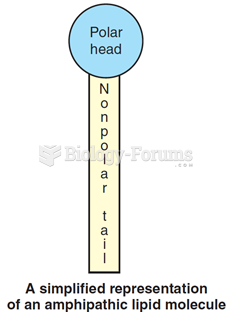|
|
|
The Romans did not use numerals to indicate fractions but instead used words to indicate parts of a whole.
Vaccines prevent between 2.5 and 4 million deaths every year.
Increased intake of vitamin D has been shown to reduce fractures up to 25% in older people.
The most dangerous mercury compound, dimethyl mercury, is so toxic that even a few microliters spilled on the skin can cause death. Mercury has been shown to accumulate in higher amounts in the following types of fish than other types: swordfish, shark, mackerel, tilefish, crab, and tuna.
The human body's pharmacokinetics are quite varied. Our hair holds onto drugs longer than our urine, blood, or saliva. For example, alcohol can be detected in the hair for up to 90 days after it was consumed. The same is true for marijuana, cocaine, ecstasy, heroin, methamphetamine, and nicotine.







